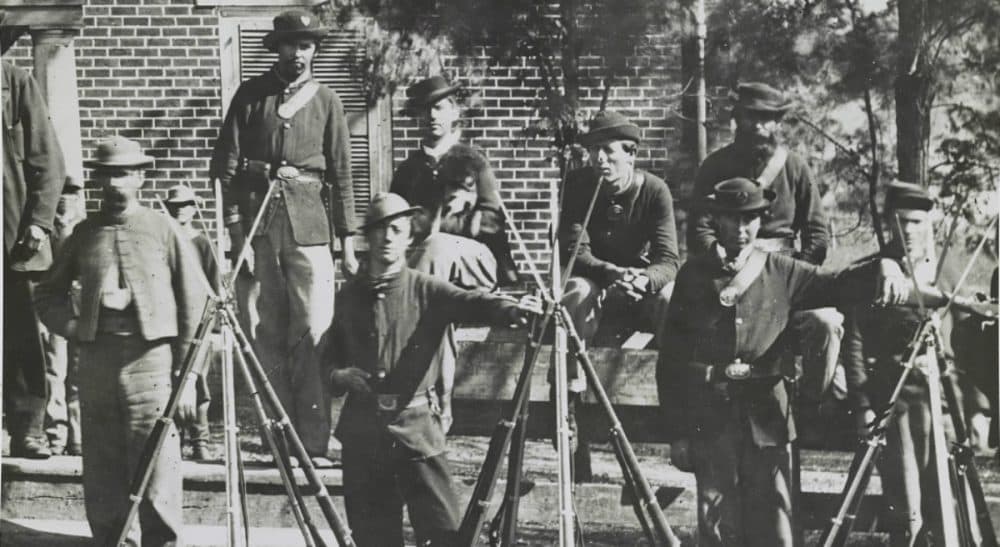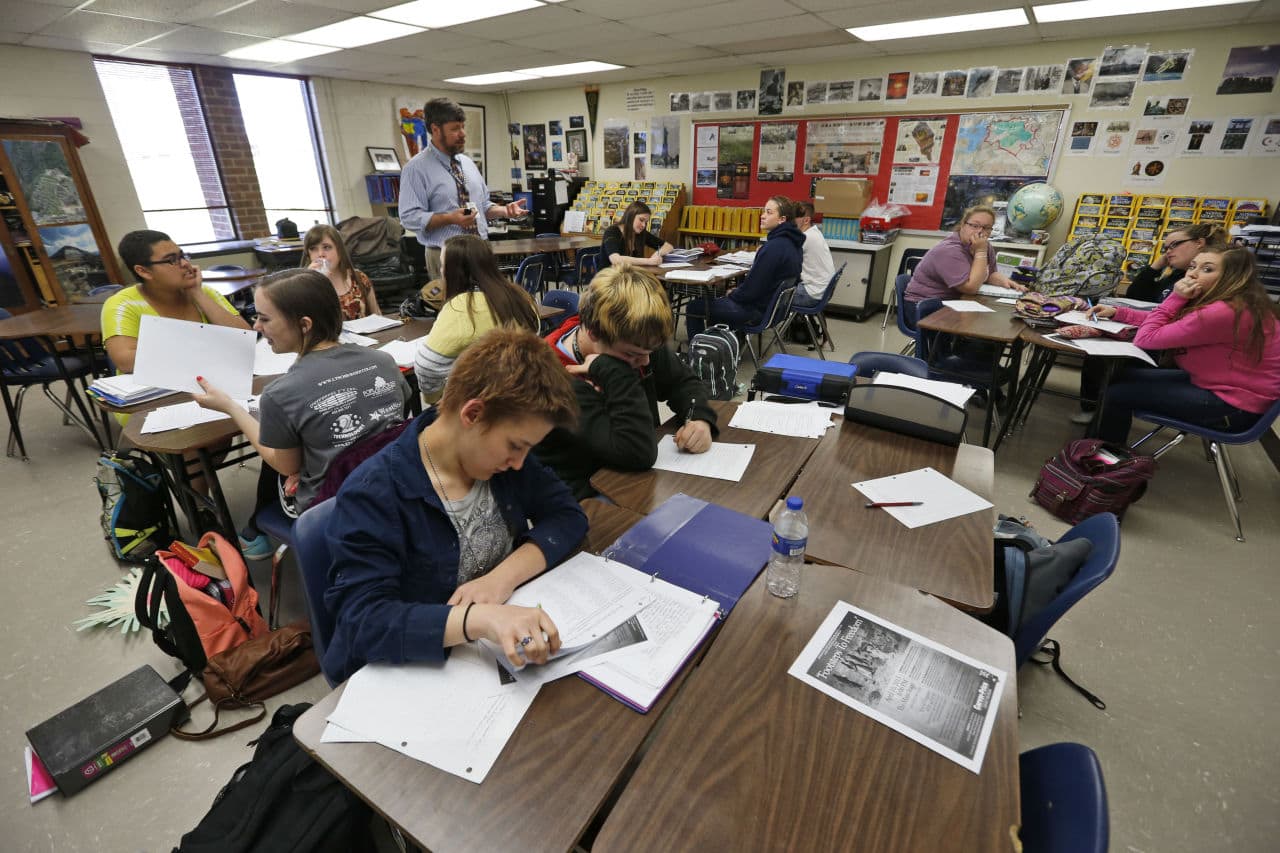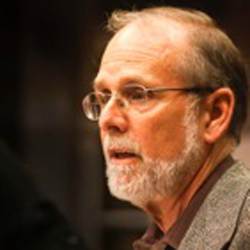Advertisement
Fondly Do We Hope: Reflections On The Civil War, A Century And A Half Later

The ten-volume “Photographic History of the Civil War” cost me $60 in 1959. It had been printed as a "Semi-Centennial Memorial" in 1912 and contains "Thousands of Scenes Photographed 1861-65, with Text by many special Authorities." I still have it, along with Burke Davis's biography of Robert E. Lee, "Gray Fox," published in 1956, bought new, and inscribed in my own hand, "I vow never to give up this book, as Elias Dungie is my witness."
...nowadays, it's as though the Civil War has once again become too hot even to touch.
Elias Dungie (whatever lost friend he was in my youth) signed his own name in the space provided. Google and Facebook have not succeeded in tracking him down, so I have not been able to assure him that I've kept my vow.
Yes, the Civil War meant a great deal to me, and General Lee was a hero whose laminated photograph, picked up as a souvenir on a road-trip with my father through Virginia and Pennsylvania when I was 11-years-old, still hangs over my desk. Centennial commemorations fed a growing thirst for that American history. As The Saturday Review joked, after 100 years, it had finally become clear who truly won the contentious war between the states: the American Association of Book Publishers.
Along with the nation as a whole, I have become more sophisticated since those days, and now the 150th anniversary of the Civil War will draw to a close with commemorations of the surrender at Appomattox and the punctuation of a derringer-shot at Ford's Theater.
My own commitment to studying history quickly expanded, like ripples in a receptive pool. Any piece of the past connects with every other, so that I was led first to a wider study of American history, and then looked far beyond our own borders to the whole world. A wider perspective informed my contemporary politics through the Civil Rights Movement, the Cold War and afterwards. That perspective keeps growing and still informs me.
Am I embarrassed by those early infatuations? Clearly not. They are a part of my own intellectual and emotional history. They also equipped me with an awareness of complexity that won't allow settling for slogans of any stripe, the same complexity that adds the dimension of tragedy to Lincoln's Second Inaugural Address (a text that should be required reading on this anniversary).

One of the most interesting phenomena for me at this 150-year mark is the absence of all the hoopla of 50 years ago. At first, it looked promising for the American Association of Book Publishers (if the organization is still around), with a number of thoughtful new books making their appearance, but that's trickled away. Hollywood has also been noticeably subdued, with the notable exception of “Lincoln.”
Television last treated us to a thorough documentary with Ken Burns' Civil War in 1990, but even that was imbued more with the reconciling spirit of the 50th anniversary, an animated version of my “Photographic History” from 1912, than it was with the contentious spate of different interpretations that were highlighted and encouraged by the civil rights movements of the early 1960s. Our understandings of the irrepressible conflict have continued to change a great deal in the past 50 years.
But nowadays, it's as though the Civil War has once again become too hot even to touch.
It is painfully clear that the issues that underlay and fueled the Civil War survived it. They are woven into the DNA of our national genome — the promise of our ideals, the economics of race, the compromises of sectional politics and the relationship between federal and state governments. Its symbols still wave over Southern capitol buildings, just as the ramrod-stiff statues dominate our New England town greens.
We do ourselves no service in trying to eradicate the memory or the study from our collective intelligence, as some school systems are trying to do. It is only by accepting our own history critically that we can make it serve us.
It is only by accepting our own history critically that we can make it serve us.
One hundred years ago, "we" — the white majority of the United States — created a festival of reconciliation, Blue and Gray together.
Fifty years ago, an expanded and struggling "we" resurrected the conflict even as we began re-enacting large parts of it nationally in one more attempt to resolve it, "with malice toward none, with charity for all," this time Black and White together.
We're still working at that. How will this time round be remembered when the 200th anniversary rolls around? Fondly do we hope, fervently do we pray, that this mighty scourge of war may finally pass away.
